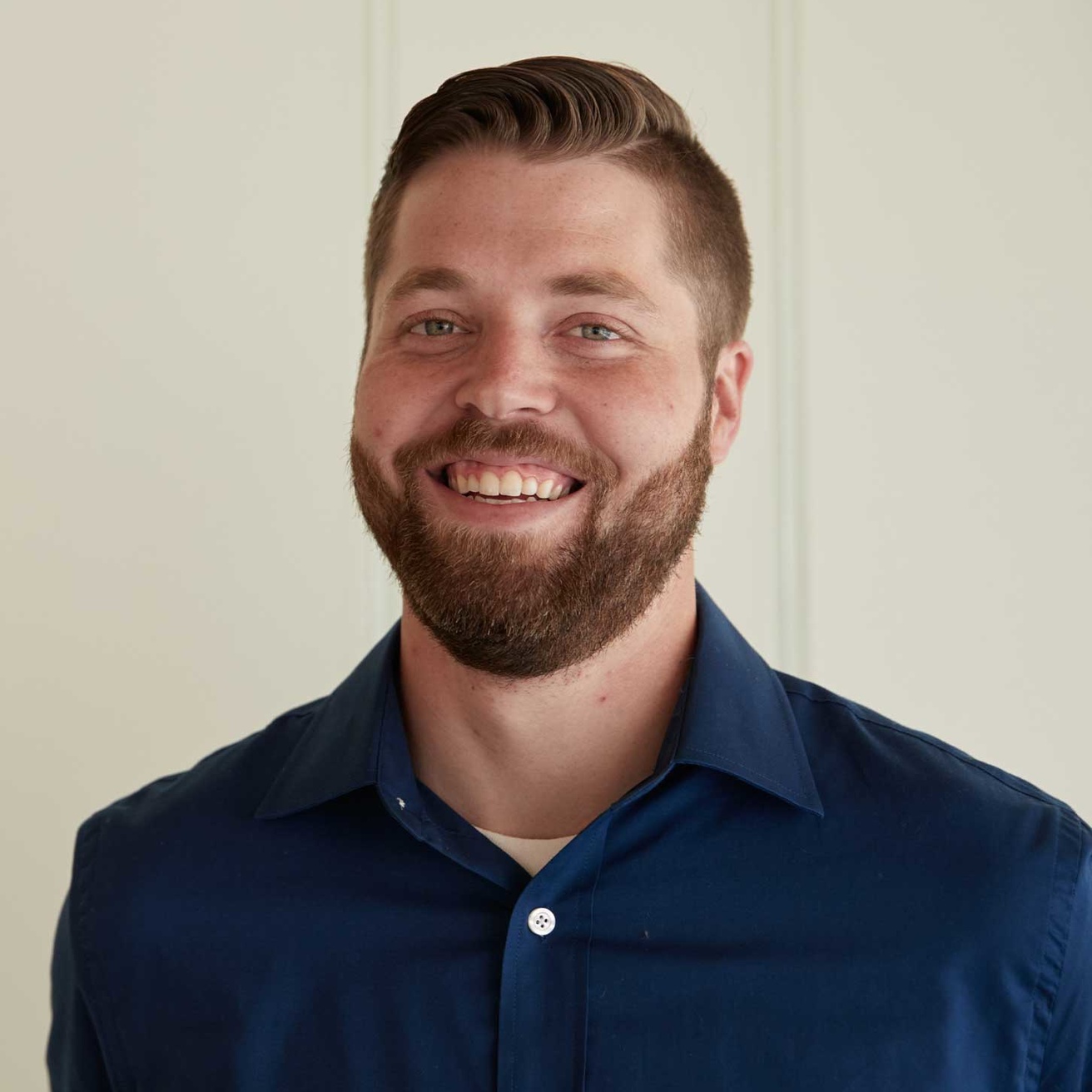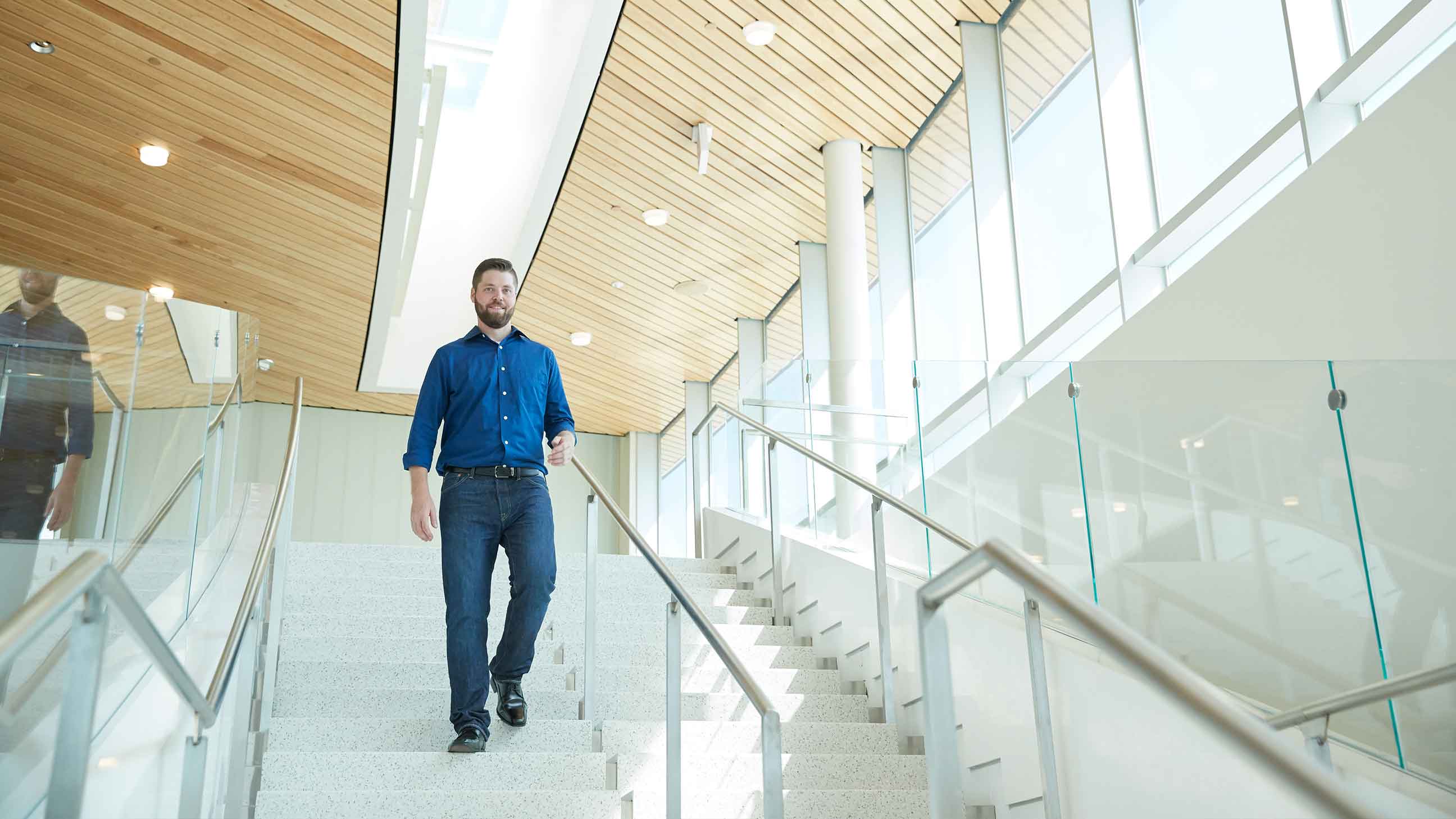
The fifth-year MAc program bridged the gap between undergrad and his CPA, and launched a dynamic career in consulting.
Successful accounting careers start at Tippie
What leads to a successful accounting career? It’s the higher-level thinking that drives smart decisions.
Tim Rosener (MAc12) learned to address complex business scenarios by applying accounting concepts—a skill he gained in Iowa’s Master of Accountancy Program. As an Iowa undergrad, he opted for a graduate fifth year that bridges the gap between undergrad accounting and the requirement for CPA licensure.
Tim started with PwC in Minneapolis, providing risk consulting services to clients ranging from Fortune 100 financial service companies to global philanthropies. He’s now a strategy manager at global supply chain expert CH Robinson.
“Instead of just becoming a number-crunching, repetitive, detail-oriented accountant, I became a more well-rounded individual who could not only look at a problem and give you an answer, but could come up with the best answer because I had a variety of ways of thinking about the problem."
Tim explains how the program shaped his career.
What's a class where you developed higher-level business thinking?
Design and Use of Cost Management Systems. As an undergrad you studied variance analysis, contribution margins, and the very tactical, definitive items in an accounting textbook. But this class took those concepts and made you think about them in terms of real business scenarios. Instead of having a work problem where profit is X and costs are Y, the class would give you a full business case study where you had a small business facing this issue.
How did that make an impact on you?
It forced you to apply concepts you were familiar with, but in a different matter than just repetitive execution. You think about what tools are at your disposal and come up with creative ways to solve for different problems—and then you defend your solutions and options.
How does accounting incorporate creativity?
It’s all about the creativity and problem solving. It’s not just 'Here’s the question with a right answer and wrong answer.' It’s an open-ended question. You’ve got to push yourself beyond what you’re traditionally asked to think about. There’s no right or wrong answer, but at the end of the day you’re going to have to prove a strong rationale for why you chose to do that.”
When we hear “creative accounting,” we may think of something else!
Well, ‘creative’ is a unique word—but that’s where I think I gained the most value. Instead of just becoming a number-crunching, repetitive, detail-oriented accountant, I'm a more well-rounded individual that can not only look at a problem and give you an answer, but come up with the best answer to your problem because I have a variety of ways of thinking about it.
And how does this thinking play into your job?
That’s what I’m challenged with from my clients every day: ‘Based on your industry expertise, what you’ve seen from your other clients, how should we approach this issue? What are some of the positives and negatives? Are there other things we’re not considering?’ These are all questions I’m getting asked daily that, because I had strong foundation in the master’s program, I feel much more comfortable facing.”

“What surprised me the most is the number of relationships I developed with my fellow classmates—and the professors in particular. This fall I was on campus a couple of times and talked with my professors. And it felt like I was never gone, like I was still one of their students. They remember me, and they know what I’ve been doing in the last several years. I feel like that was the biggest unanticipated aspect.”
How has accounting changed? Do the old stereotypes hold true?
The way we work with clients these days is as a collaborative as it gets. We don’t really have any projects where the client just gives us the data or a set of numbers and says, 'Go work on this by yourself and come back to us a month later.'
Business in general is becoming more and more collaborative the more complex it gets, but accounting is at the forefront of this because you have to take perspective of all areas of business and compile it into whatever projects you’re working in. It is not even an option anymore to work in that siloed outdated mindset. Its more about, ‘How can we bring everyone to the table and have these collaborative discussions?’